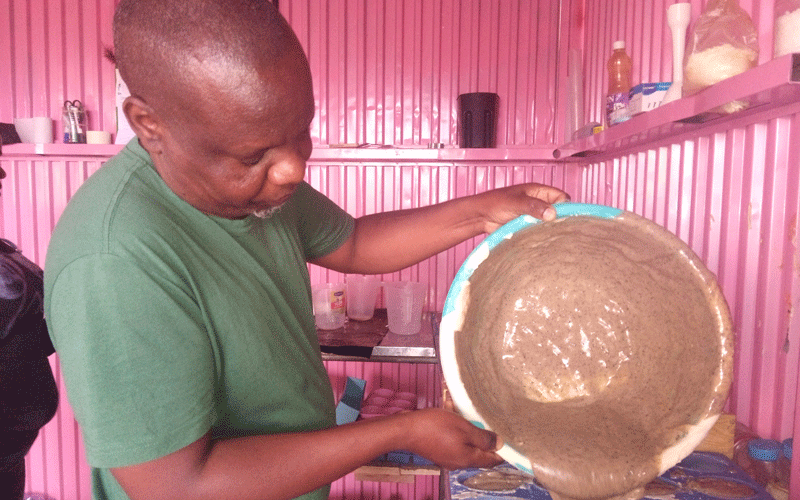Making fortunes out of organic soaps

Every time we get into a shop to buy a bar of soap, it is unlikely that we pay attention to ingredients used in making them, provided it serves the intended purpose.
But have you ever thought of coming across a soap made from ingredients such as coffee, macadamia, carrots, oranges, rice, and charcoal?
This is the venture Stephen Mwaura chose to undertake in his passion to promote a healthy lifestyle.
After working as a lead insurance agent in one of the companies in Nairobi for 15 years, he opted to quit his job to get into soap-making business.
He was inspired by his wife Tabitha Muchue, who came up with this idea of making organic soaps— a skill she had learnt from her friend.
At first, she used to make soaps for them to use at home, but Mwaura saw the potential in the idea and saw an opportunity they would not afford to lose.
“I saw the end product she made and felt she was wasting her skills at home. I had to think of a way we could make this a business venture” he said.
He gave his wife Sh15,000 as starting capital to get more raw materials and equipment she needed.
She made 200 pieces, and Mwaura who had sharpened his marketing skills from his insurance job went out to sell them.
How it works
“We packed them in a small bag. By the time I got back home in the evening, I had sold all of them” he said. 
This motivated them to make more soap and slowly, it became a family business they called New Start Organics that they have been running together for the past four years.
He says the wife usually works behind the scenes in making the soaps while he takes the marketing role though he has also learnt the art.
To make the soaps, they use three types of oils extracted from the plants, which are preheated before he mixes with the major ingredient such as ground coffee or rice.
Each ingredient is chosen for its natural wellness properties, which in turn are beneficial to the skin.
For example coffee is an excellent skin exfoliator while macadamia oil is highly moisturising and full of vitamins and antioxidants.
The blending of oils, he says, helps in retaining the natural composition of the components used.
The soaps are basically for bathing, and they are best suited for people struggling with various skin issues, but they can be used in other domestic chores and most interestingly, even in brushing teeth.
It takes about 24 hours for the mixture to cool down and become solid, but Mwaura says the soaps are kept for at least eight weeks to cure.
The feedback from his clients has been encouraging him to explore more to get a wider variety of products.
“Most of them get satisfactory results and they come back for more and even bring more friends,” he adds.
While most of the people would prefer to have perfumed soaps, Mwaura keeps them all natural unless a client requests to have an added fragrance.
“The natural scent from the plants is therapeutic and it soothes even the mind and that’s why I don’t add any scent,” he explains.
As someone whose background is in a different sector, Mwaura says, he turned to the Internet for research and information that has helped him and his wife perfect the art of soap making.
“Plants are medicinal and if properly used, they would cure nearly all the problems affecting our bodies,” he says.
Pandemic effect
Mwaura was running a shop in Nairobi but when the pandemic was reported in the country, he moved to Kenol town in Murang’a.
Despite having attracted local customers, he has also been using social media platforms to sell his products and this has helped him reach out to more people.
Through this, he has been able to get clients from as far as Germany, Italy, Egypt, Rwanda, Uganda and Tanzania.
During the pandemic, the company experienced delays at border points and increased courier charges, which in turn, raised their operational costs.
Other challenges include inability to access some raw materials in time due to transport and logistics delay.
“As a young business, we have difficulty in attracting credit facilities due to our micro size and no ownership of tangible assets,” he says.
Despite these challenges, Mwaura says they plan to go beyond soaps and make more natural products such as lotions, powder, lip balm and other beauty products.
“I also intend to make natural foods such as yogurt and juice purely made from the plants to promote a healthy lifestyle,” he said.
He has a vision of establishing a factory where he can be making these products as well as create job opportunities for young people.



